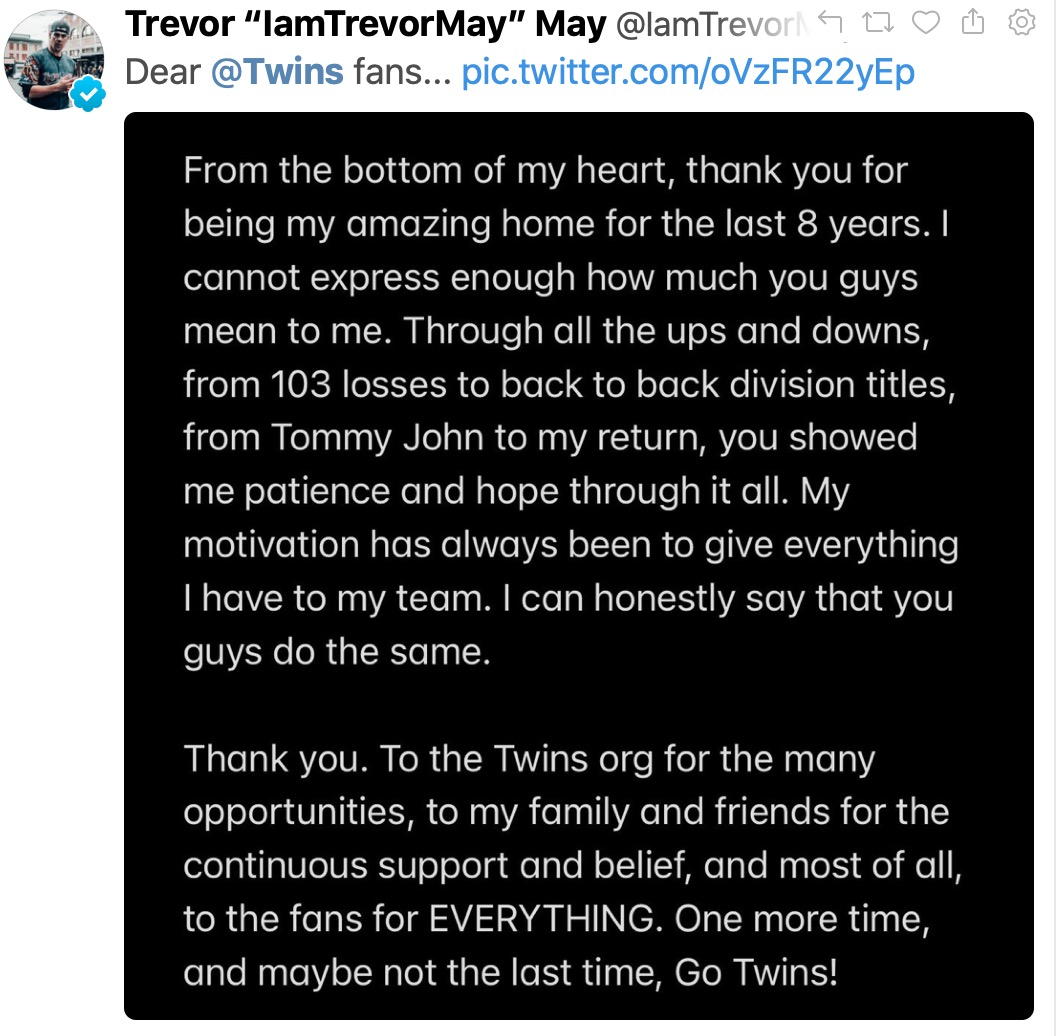
Trevor May said…
“To be honest, one of the biggest things is kind of the buzz around Steve and the purchase of the team and the excitement of all the changes happening. My immediate reaction was wanting to be a part of something like that.”
Right. That and the $15 million. Come on.
The last thing Trevor did before switching caps was post a very nice love letter to Twins fans about how groovy everything was and how he might even come back some day!

So if it was so groovy there, why not stay – unless they can’t afford say fifteen million dollars.
Look, I’m glad you like the Mets and all but Cult Of Steve is a little silly. And that buzz? Oh you will feel it when the team is 8 and 2 and the comedians are hanging with the t-shirters…but come the annual June Swoon, you’ll be thinking about pinstripes or maybe even Minnesota.
As for the Cult Of Steve, I know Mets fans really struggle to multitask and nobody does any homework but how about this one gang, via the New York Times. If you want to continue to believe in Santa Claus I suggest you stop reading right now.
Kolhatkar never reduces anyone in “Black Edge” to a stone-gargoyle grotesque. But Cohen certainly goes across the street and around the corner to reify certain stereotypes about hedge fund managers. Monster estate in Greenwich, Conn.? Check. (The backyard has a 6,000-square-foot ice-skating rink, plus a shed for the Zamboni.) Priceless art collection? That, too. (It includes Damien Hirst’s shark suspended in formaldehyde, a metaphor so literal you don’t know whether to laugh or cry.) Nasty divorce? Oh, yes. (You know things are ugly when your ex files a Freedom of Information Act request to get the goods on you.)
Even more striking to a civilian, though, is the other-planetary toxicity of SAC Capital’s culture. The competition was ruthless. Everyone was expendable, including partners and mentors. Cohen couldn’t tolerate anyone’s making money before he did — he’d fly into a rage if he heard that a portfolio manager had done a trade without giving him first dibs. “Employees often felt like they were part of an experiment looking at the effects of prolonged stress and uncertainty,” Kolhatkar writes. (New York Times)
It’s all about the money, it’s always about the money, everything is about the money. The money. Always follow the money. Trevor, enjoy the money.

